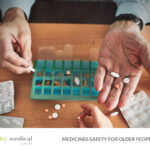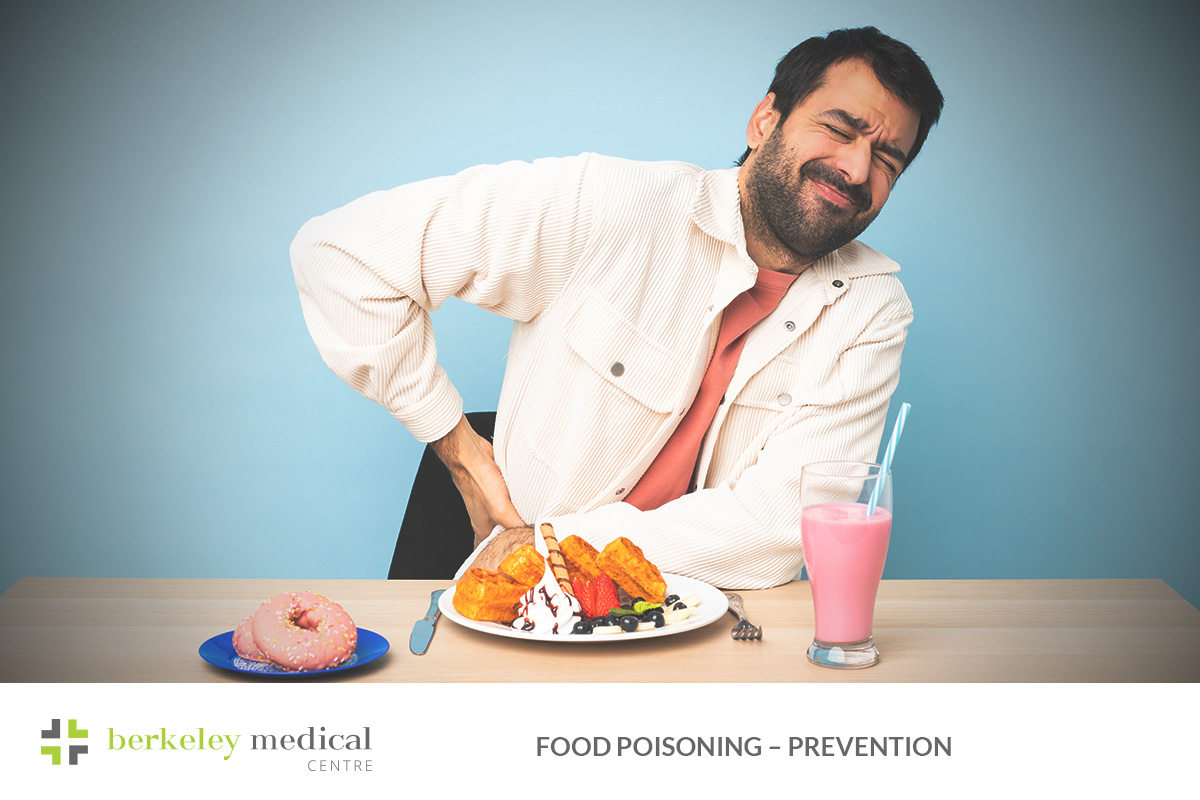Food poisoning is a preventable health issue caused by consuming contaminated food or drinks. In Australia, thousands of cases are reported each year, highlighting the importance of proper food handling, storage and preparation. The good news? With simple yet effective practices, you can significantly reduce the risk of foodborne illnesses.
In this guide, we will explore everything you need to know about food poisoning and provide actionable tips to keep your meals safe and your family healthy.
What Causes Food Poisoning?
Food poisoning happens when harmful microorganisms like bacteria, viruses, or toxins contaminate your food. These contaminants often enter food during production, preparation, or storage. Improper hygiene, undercooking, or leaving food at unsafe temperatures are common culprits.
Common Causes of Contamination
Bacteria: Harmful bacteria like Salmonella, E. coli and Listeria can multiply quickly, especially in warm, moist conditions.
Viruses: Viruses such as Norovirus and Hepatitis A can spread through poor hygiene practices during food handling.
Toxins: Some bacteria produce toxins that can contaminate food even if it looks and smells fine.
Which Foods Are High-Risk?
Certain foods are more prone to contamination and require extra care during handling and preparation.
- Raw and Cooked Meats: Poultry, beef and pork are particularly susceptible to bacterial growth.
- Dairy Products: Milk, cheese and cream-based desserts can spoil quickly without proper refrigeration.
- Eggs and Egg-Based Dishes: Foods like homemade mayonnaise or mousses can pose risks if undercooked.
- Seafood: Fish and shellfish must be handled and stored carefully to avoid contamination.
- Cooked Rice and Pasta: These foods can harbour bacteria if left at room temperature too long.
- Prepared Salads: Coleslaw, potato salad and fruit salads require constant refrigeration.
- Ready-to-Eat Foods: Items like sandwiches and deli meats can become unsafe without proper storage.
Who Is Most at Risk?
While anyone can develop food poisoning, some groups are more vulnerable:
Pregnant Women: Hormonal changes increase susceptibility to infections.
Young Children: Immature immune systems make children less able to fight off pathogens.
Elderly Individuals: Aging weakens the immune system, making seniors more prone to severe symptoms.
People with Chronic Illnesses: Those with diabetes, cancer, or compromised immune systems face higher risks.
If you or a loved one falls into these categories, it is crucial to take extra precautions to prevent food borne illnesses.
How to Recognise Symptoms of Food Poisoning
Symptoms of food poisoning vary depending on the contaminant, but they often include:
- Nausea
- Vomiting
- Diarrhoea
- Abdominal cramps
- Fever and chills
Symptoms can appear within hours or take several days to develop. If symptoms persist or worsen, seek medical attention promptly.
Top Tips to Prevent Food Poisoning
Preventing food poisoning is simpler than you might think. Follow these proven strategies to protect yourself and your family.
Prioritise Hygiene
Good hygiene is the foundation of food safety.
- Wash Your Hands: Always wash your hands thoroughly with soap and water before and after handling food.
- Clean Surfaces and Utensils: Disinfect cutting boards, knives and countertops regularly to prevent cross-contamination.
- Separate Raw and Ready-to-Eat Foods: Use separate cutting boards for raw meats and other foods to reduce the risk of bacterial transfer.
Store Food Safely
Proper storage is essential to slow bacterial growth and keep food safe.
- Refrigerate Promptly: Store perishable items in the refrigerator within two hours of cooking or purchasing. During hot weather, reduce this time to one hour.
- Monitor Fridge Temperature: Set your refrigerator to 5°C or below to ensure safe storage.
- Avoid Overcrowding: Allow space in the refrigerator for air to circulate and maintain consistent cooling.
Cook Food Thoroughly
Cooking food to the right temperature kills harmful microorganisms.
- Use a Food Thermometer: Ensure poultry reaches an internal temperature of 75°C and other meats are cooked to at least 63°C.
- Reheat Leftovers Safely: Heat leftovers until steaming hot throughout to destroy any bacteria.
- Avoid Under cooked Foods: Fully cook high-risk items like eggs, seafood and meats to prevent illness.
Be Mindful When Shopping
Smart shopping practices can prevent food safety issues before they begin.
- Check Expiry Dates: Avoid items that are close to their expiration date.
- Inspect Packaging: Do not purchase products with damaged, swollen, or leaking packaging.
- Transport Perishables Safely: Use insulated bags or coolers to keep items like meat and dairy chilled on the way home.
Handle High-Risk Foods Carefully
Foods prone to contamination require extra attention during preparation and storage.
- Seafood: Buy only from reputable sources and ensure proper refrigeration or freezing until cooking.
- Dairy Products: Store in the coldest part of your refrigerator and consume before the use-by date.
- Prepared Salads: Keep these refrigerated and consume them quickly after purchase.
When to See a Doctor
If you experience severe symptoms such as prolonged vomiting, blood in stools, or dehydration, seek medical care immediately. Vulnerable groups like children, the elderly and pregnant women should not delay treatment.
At Berkeley Medical Centre, our team is ready to provide care and advice if you suspect food poisoning. Early intervention can prevent complications and speed up recovery.
Why Prevention Matters
Taking simple steps to prevent food poisoning protects not only your health but also that of your family and community. By following proper food handling, storage and preparation practices, you can:
- Reduce the risk of illness.
- Avoid costly medical treatments.
- Enjoy peace of mind knowing your meals are safe.
Take Action Today
Preventing food poisoning is easier than you think. Start by implementing these practical tips in your kitchen and stay vigilant about food safety. Small changes in how you handle, store and cook food can make a big difference in keeping you and your loved ones healthy. Do not wait for illness to strike—be proactive and make food safety a priority today. Berkeley Medical Centre is here to support your journey to better health. Reach out to us for guidance or care whenever you need it.







